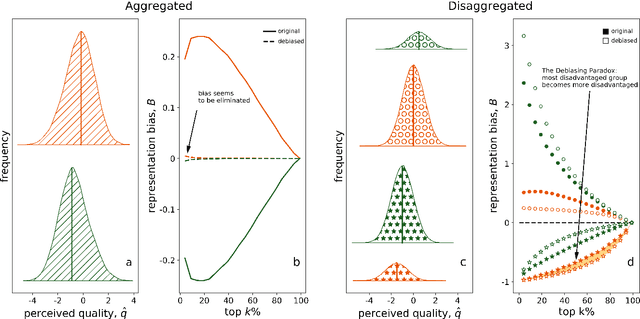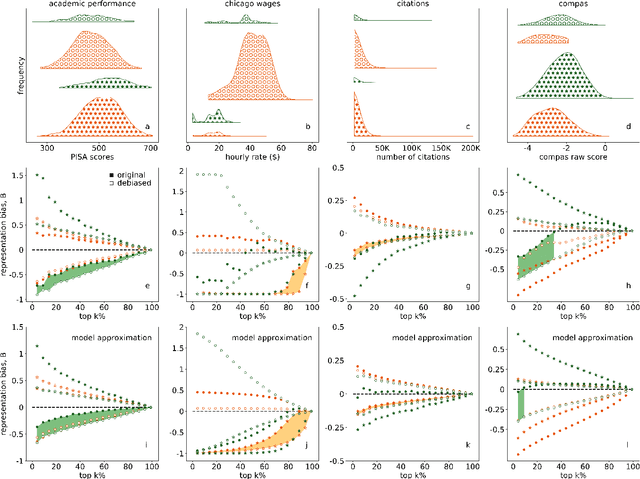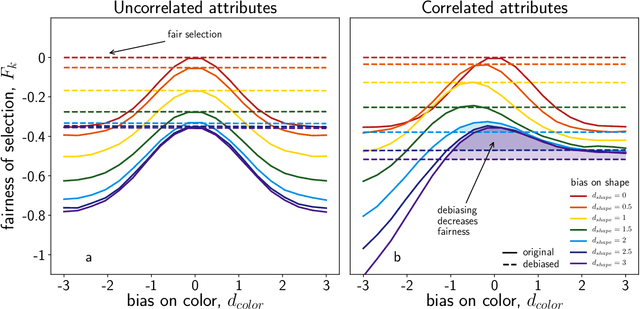Quota-based debiasing can decrease representation of already underrepresented groups
Paper and Code
Jun 13, 2020


Many important decisions in societies such as school admissions, hiring, or elections are based on the selection of top-ranking individuals from a larger pool of candidates. This process is often subject to biases, which typically manifest as an under-representation of certain groups among the selected or accepted individuals. The most common approach to this issue is debiasing, for example via the introduction of quotas that ensure proportional representation of groups with respect to a certain, often binary attribute. Cases include quotas for women on corporate boards or ethnic quotas in elections. This, however, has the potential to induce changes in representation with respect to other attributes. For the case of two correlated binary attributes we show that quota-based debiasing based on a single attribute can worsen the representation of already underrepresented groups and decrease overall fairness of selection. We use several data sets from a broad range of domains from recidivism risk assessments to scientific citations to assess this effect in real-world settings. Our results demonstrate the importance of including all relevant attributes in debiasing procedures and that more efforts need to be put into eliminating the root causes of inequalities as purely numerical solutions such as quota-based debiasing might lead to unintended consequences.
 Add to Chrome
Add to Chrome Add to Firefox
Add to Firefox Add to Edge
Add to Edge